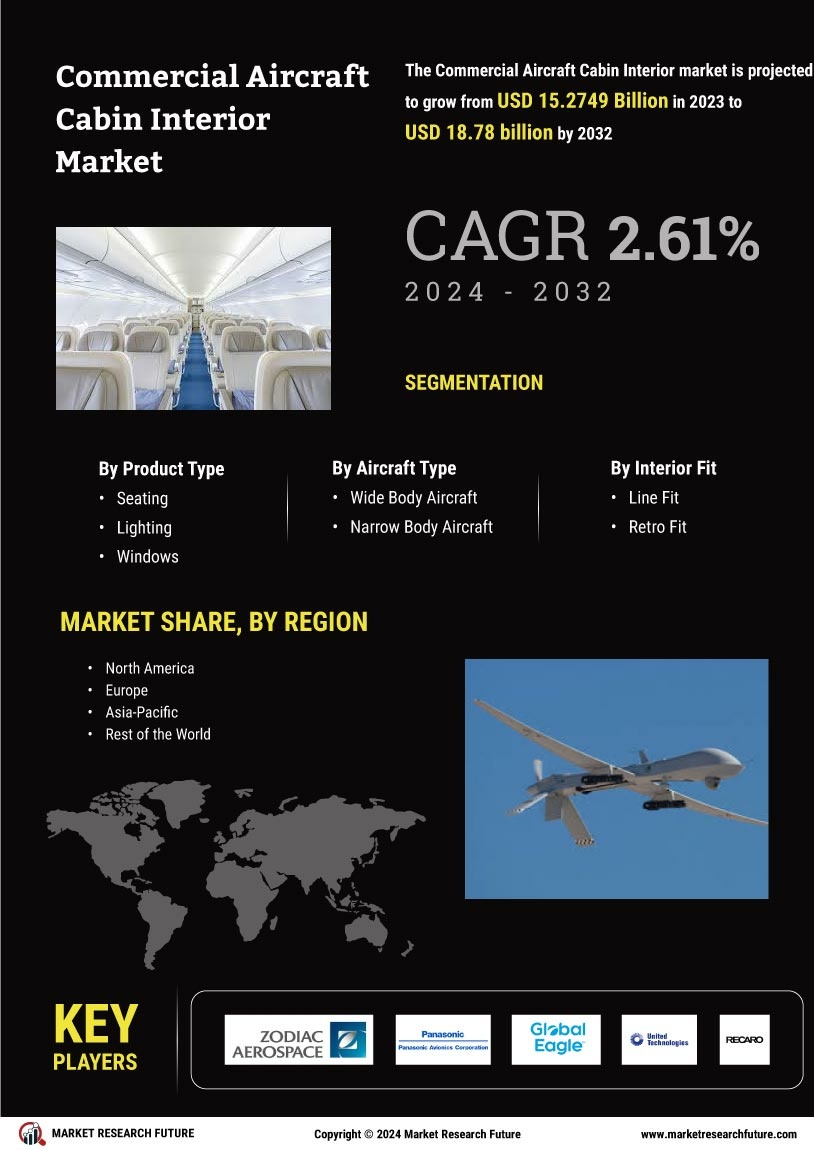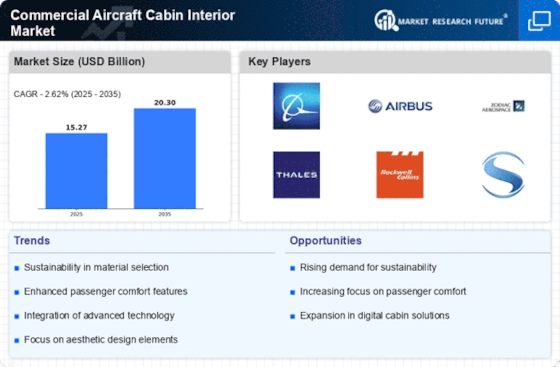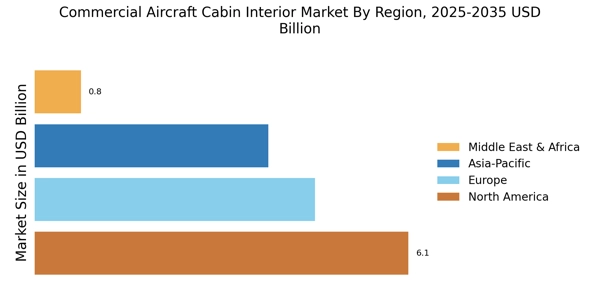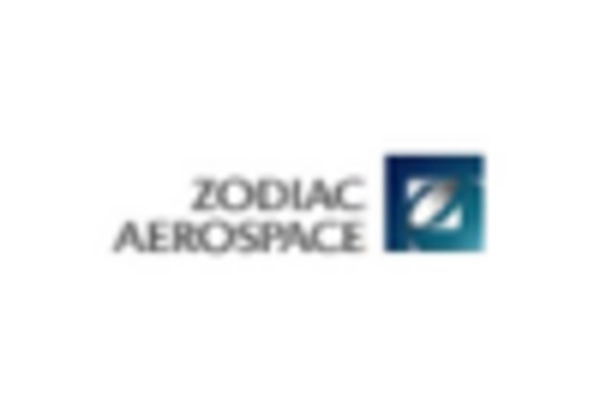Focus on Passenger Comfort
In the Commercial Aircraft Cabin Interior Market, there is a pronounced emphasis on enhancing passenger comfort. Airlines are increasingly aware that a comfortable cabin environment can significantly influence customer satisfaction and loyalty. This has led to investments in ergonomic seating, improved cabin layouts, and advanced in-flight entertainment systems. According to recent data, airlines that prioritize passenger comfort report higher retention rates and increased revenue from ancillary services. The trend towards more spacious and aesthetically pleasing cabin interiors is likely to continue, as airlines seek to differentiate themselves in a competitive market. This focus on comfort is a key driver of growth within the Commercial Aircraft Cabin Interior Market.
Technological Advancements
Technological advancements are playing a pivotal role in shaping the Commercial Aircraft Cabin Interior Market. Innovations such as smart cabin technology, which includes mood lighting and personalized climate control, are becoming increasingly prevalent. These technologies not only enhance the passenger experience but also improve operational efficiency for airlines. The integration of advanced materials that are lighter and more durable is also contributing to fuel efficiency, which is a critical concern for airlines. As technology continues to evolve, the demand for modernized cabin interiors that incorporate these advancements is expected to rise, further driving growth in the Commercial Aircraft Cabin Interior Market.
Increased Air Travel Demand
The Commercial Aircraft Cabin Interior Market is experiencing a surge in demand due to the rising number of air travelers. As economies recover and disposable incomes increase, more individuals are opting for air travel, leading to a projected growth rate of approximately 4.5% annually. This increase in passenger volume necessitates the enhancement of cabin interiors to accommodate larger numbers of travelers comfortably. Airlines are investing in modernizing their fleets, which includes upgrading cabin interiors to improve passenger experience and operational efficiency. The need for more efficient use of space and improved amenities is driving innovation in cabin design, thereby propelling the Commercial Aircraft Cabin Interior Market forward.
Sustainability and Eco-Friendly Designs
Sustainability is emerging as a crucial driver in the Commercial Aircraft Cabin Interior Market. Airlines are increasingly adopting eco-friendly practices, including the use of sustainable materials in cabin design and construction. This shift is not only in response to regulatory pressures but also reflects changing consumer preferences towards environmentally responsible travel. The market for sustainable cabin interiors is projected to grow as airlines seek to reduce their carbon footprint and appeal to environmentally conscious travelers. Innovations such as lightweight materials and energy-efficient lighting systems are becoming standard, indicating a strong trend towards sustainability in the Commercial Aircraft Cabin Interior Market.
Regulatory Compliance and Safety Standards
Regulatory compliance and safety standards are fundamental drivers in the Commercial Aircraft Cabin Interior Market. Airlines must adhere to stringent regulations regarding cabin safety, which influences design and material choices. The need to comply with these regulations often leads to innovations in cabin interiors, as manufacturers develop new solutions that meet safety requirements while enhancing passenger experience. The ongoing evolution of safety standards necessitates continuous investment in cabin upgrades, thereby driving growth in the market. As safety remains a top priority for airlines, the Commercial Aircraft Cabin Interior Market is likely to see sustained demand for compliant and innovative cabin designs.

















